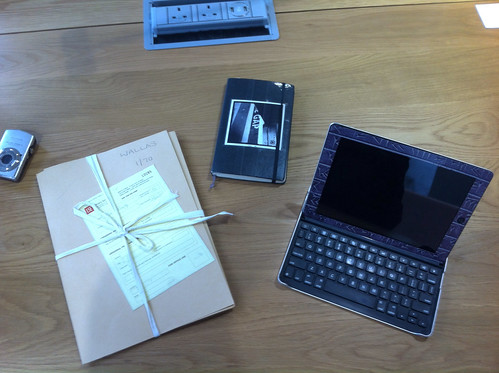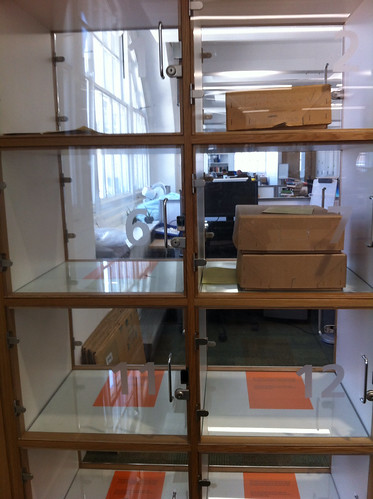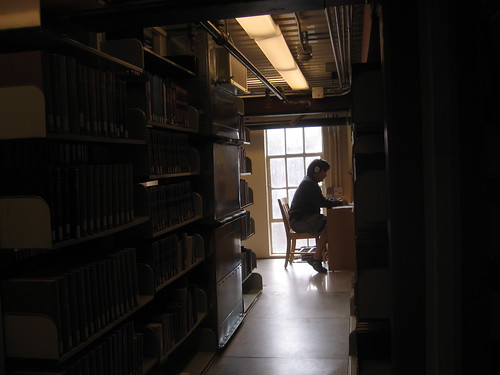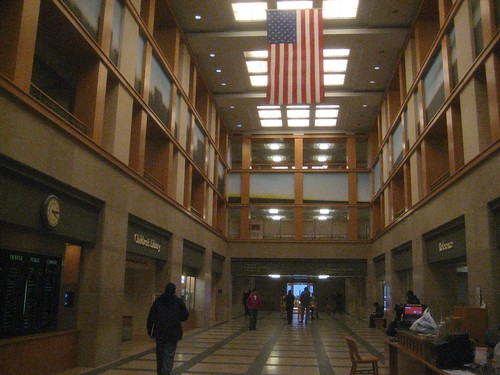Twenty years ago I published an essay on the psychological and practical aspects of leaving academia. I had recently moved from U.C. Davis to Chicago and a job at Encyclopedia Britannica, after several years of postdocs and teaching and endless job applications. At the time, there weren’t that many people talking publicly about leaving academic jobs; few humanities or social science Ph.D.s making the argument that you could achieve everything you wanted to as a scholar and writer outside academia; and even fewer were making the argument that the nonacademic world can be a better place to do thoughtful work.
I had been out of academia for less than a year when I wrote the piece, and just starting a new career. I posted the occasional update to the original essay (an essay from 1999 on corporate life and the life of the mind, and a couple pieces of advice to young graduate students), but yesterday it struck me that now– two decades later, and while I wait for the galleys of my next book to arrive– would be a good time to revisit the question of what kind of life a humanist or historian can craft outside the tenure track, and in particular to talk to graduate students and young Ph.D.s who are both thinking about leaving academia, but who still want to research and write.
The most important thing I’ve learned is that the world is full of interesting questions.
By this I mean a couple things. First, while I was trained to look for interesting projects in the archives, or the interstices of scholarly literatures, I’ve found that the questions I encounter as a consultant or as writer are just as engaging. (This is something I’ve talked about elsewhere.)
Second, I’ve found lots of opportunities to use the tools you acquire in graduate school, and to ask the same kinds of questions I did in the seminar room.
For example, my work as a futurist and technology forecaster turns out to be a version of STS. There are people who do tech forecasting as a kind of exercise in utopian determinism, but I haven’t; instead, my work has emphasized the open-ended, contingent nature of technological change and innovation, and argued that we need to look at a variety of forces to understand how the future (or future of some specific technology) might unfold. In other words, it’s an exercise recognizable to anyone who’s been exposed to an academic STS program. What’s been surprising to me is how often something I’m working on or interested in turns out to have a dimension that can be explored using the STS toolkit. (Of course, experience helps. If you do something for a long time you get good at finding opportunities to do it; if you spend a long time looking for a pattern you’ll get good at spotting it.)
This doesn’t mean you can do exactly the same work you’d do if you were a professor somewhere: specialized projects that require months of access to one-of-a-kind materials would be hard to do if you didn’t live near them, or have long stretches of time off to spend with them. But what I’ve found is that while the kinds of things I write about now often are different from what I would be writing about if I were a professor, they’re just as interesting— and often, my work serves as a kind of fieldwork that gives me access to things I would never see as a student or academic.
For example, I’ve been able to write about the sociology and materiality of strategic consulting, drawing on my experience working with clients like Deloitte, Samsung, and the CIA. None of them would have ever been interested in having me just observe them; and I would never have learned about scenario planning, or learned the craft of planning and managing workshops.
Though sometimes you can ask the same questions you did as a student, even if the products and my own voice are different. My latest book on rest is a perfect example. It’s written for a general audience, has a healthy mix of neuroscience and current business stuff, and will be published by a trade press (thank you Basic Books!). But it asks a set of questions about creativity and work that I first encountered as a freshman, in a course with the great Thomas Parke Hughes, and have been interested in ever since.
I’m not sure whether, as a tenured professor looking for a promotion, I could write this kind of book.
The other point worth making here is that when you move from writing straight-on academic work to writing more popular stuff, you’re not exchanging the freedom of the life of the mind for the narrow strictures of the marketplace; you’re trading one set of structures that define what constitutes an interesting problem, what value different kinds of products (articles vs. monographs vs. Web sites) have, who’s going to read them, etc., for another. No writing exists outside a network of forces that help answer those questions; it’s just that in one context, the answers are provided by anonymous journal referees and promotion committees, and in another the answers are provided by acquisitions editors, marketing people, and agents.
But even when they’re different kinds of work, different audiences, different products, it’s possible for futures and consulting work to offer the same kind of intellectual engagement and flow that I was always seeking as a graduate student and postdoc: it’s possible to enjoy this work in the same ways I enjoyed scholarly work. At the end of the day, I think that’s what matters most. You really can’t predict if a book is going to make a big splash, or get a huge readership, or sink without a trace; all you can do is write the best book you can, and have as good as time writing it as possible.
There are lots of resources available to non-academics for building a scholarly habitus.
One obvious concern that you’ll have is that the unique resources of research universities won’t be available to you if you leave, and therefore holding on for a few years of adjuncting in exchange for continued access to the library– and ultimately the hope that you can publish your way out of the margins of the job market and into a permanent job– makes sense.
Perhaps for super-specialized fields, this is true; but I think that for most of us, it’s possible to reassemble our own scholarly habitus. While I was writing REST, I was struck at how much I had come to rely on four sets of resources, three of which are easily available:
The public library. Of course it’s awesome to bury yourself in the stack of Sterling or Weidener or wherever; on our last vacation to London, my wife and I chose a hotel not far from the British Library. But for 70% of what I do, my local public library branch is all I really need. You shouldn’t bend the arc of your life in order to have access to those feschrisfts and proceedings that you might use once in blue moon.
Amazon’s used books. Of course, I love my local used bookstores, and Keplers Books; my wife and I always stop at the used bookstores in Willits when we visit Northern California; and I bought an absurd number of books when I was last in England. But Amazon’s used books service lets me buy huge numbers of weird, otherwise impossible-to-find books, at absurdly low prices. I’m not talking about a cheap copy of Daniel Kahneman’s book; I mean some weird thing from 1961 that no one wants, and which is sitting in a warehouse in Pennsylvania. When a book costs a penny (plus $3.99 shipping), it becomes trivially easy to decide to buy it and try it.
Google Books. For more specialized stuff Google Books is an erratic resource, but when you do find something useful on it, it feels like sorcery.
Of course, having access to a university library, and in particular to its subscriptions to scholarly online journals, is super-helpful. But don’t think that because you can’t spend all your days in the library, your scholarly life is over. You can build a scholarly habitus anywhere. Like the life of the mind, the space for thinking is a lot more portable and durable than we think.
Many great thinkers have had day jobs.
Most writers, musicians, composers, poets, and painters have jobs that pay the bills. One striking commonality in the biographies of famous authors is how many of them don’t quit their job at the advertising agency, as a schoolteacher, or give up their insurance businesses or law practices, until their third or fourth books. It often takes that long for them to establish a name, become familiar enough with the business to move confidently, and sell enough books to keep the wolf from the door.
Indeed, most academics and scholars have day jobs: they’re teachers, administrators, and advisors. As a result, the amount of time you have for your own work after committee meetings, office hours, lecture prep, grading, etc. can be vanishingly small; the fact that you’re completely responsible for managing that time paradoxically makes it feel worse when you don’t manage to crank out a book every two years, or whatever you imagine you should be able to do.



